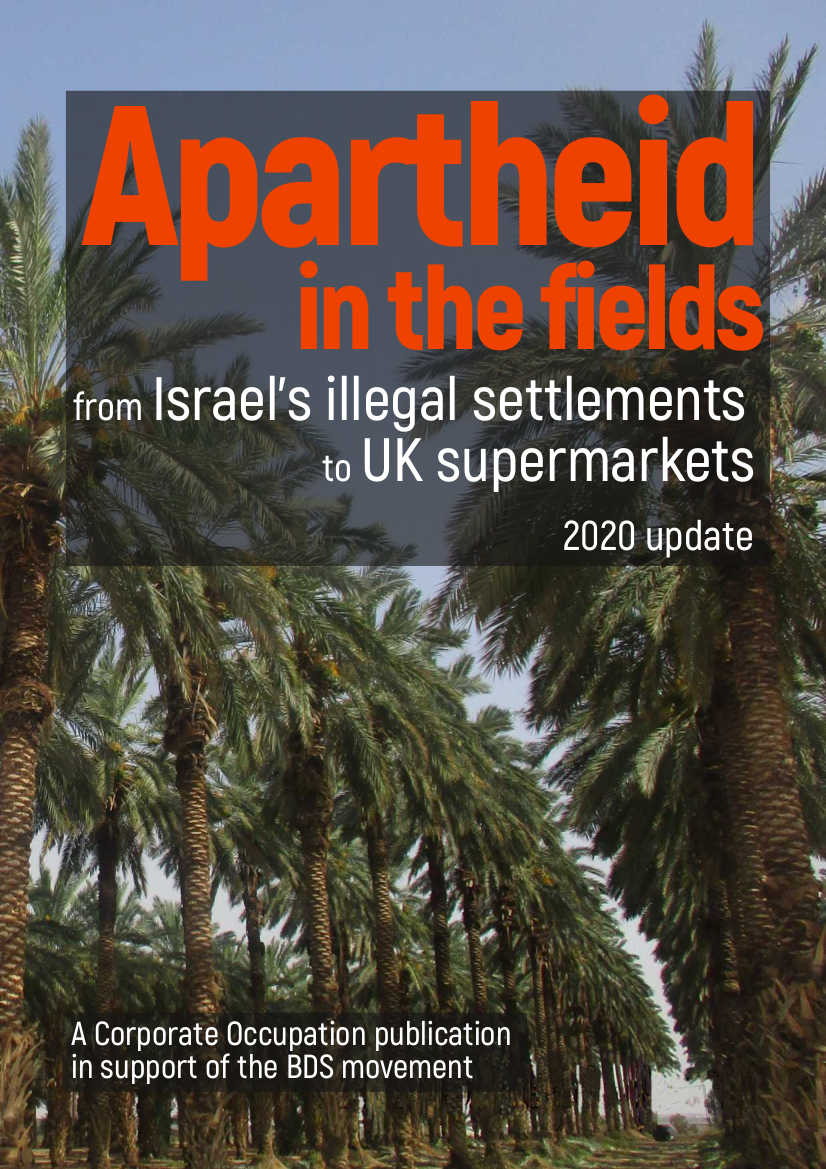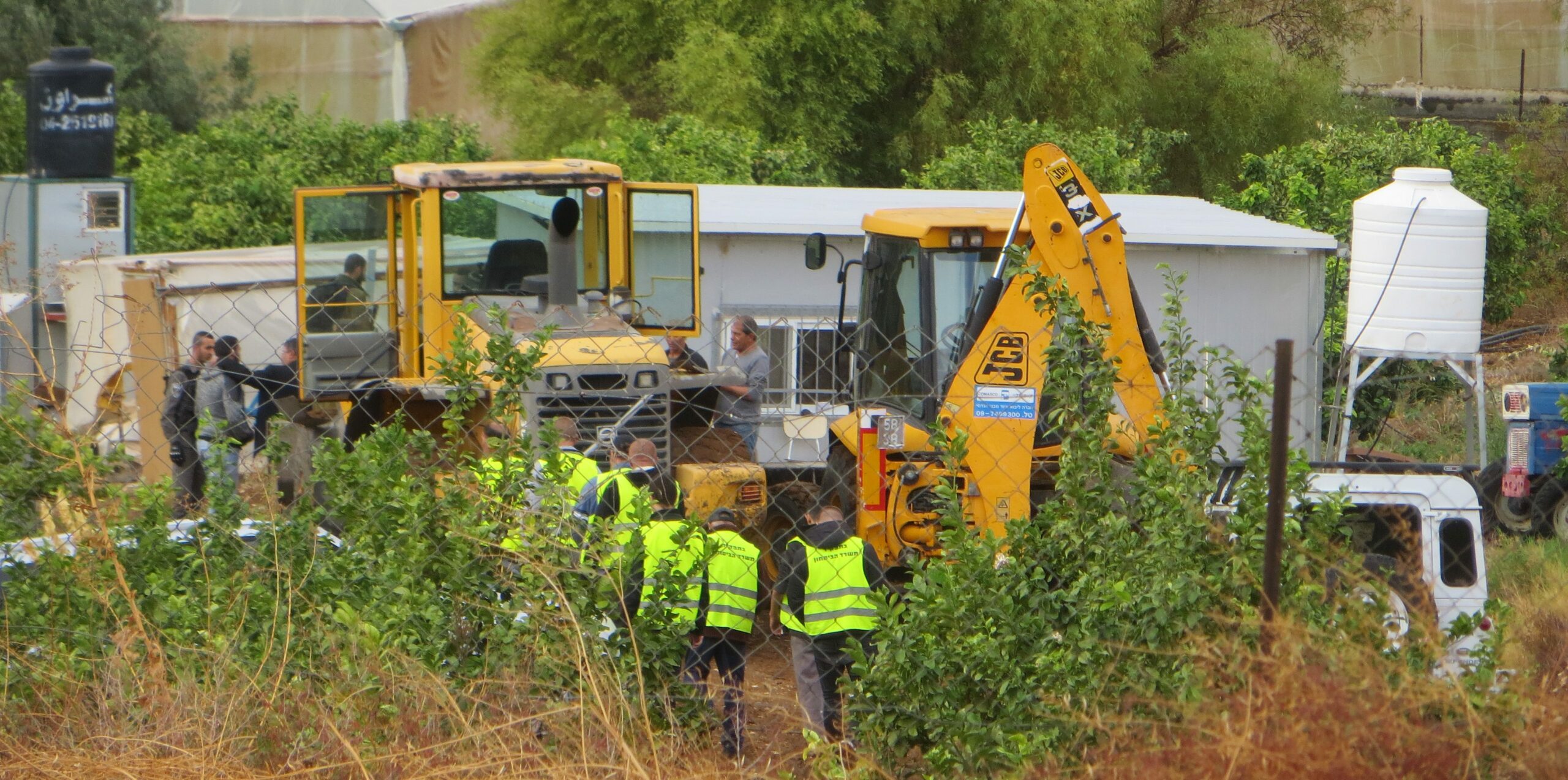By Tom Anderson
This article was originally written for Red Pepper
Boycott, Divestment, and Sanctions campaigns allow ordinary people to take action in their communities and workplaces and be a part of the popular struggle for freedom in Palestine. The following BDS actions are amongst those recommended in Corporate Watch’s new handbook for the BDS movement, Targeting Israeli Apartheid.
Israel’s apartheid wall – a barrier of concrete and wire which is still under construction- is planned to span 790 kilometres and utilise 3 million metres of barbed wire. The construction of the wall is an attempt to annex Palestinian land through the forced displacement of Palestinian families from their homes and farms. The International Court of Justice (ICJ) in the Hague issued an advisory ruling in the 2004 that the wall was illegal, that it should be taken down and that rendering assistance to it was prohibited.
But nothing happened in response. Governments did not take proactive action to prevent companies profiting from the building of the wall and did not exclude Israel from international organisations or stop the flow of military aid.
In response to this inaction, in 2005 a coalition of Palestinian and Israeli civil society groups called on people of conscience around the world to implement boycotts, divestment campaigns and press for sanctions against Israel until
“it withdraws from all the lands occupied in 1967, including East Jerusalem, and removes all its colonies and walls in those lands; implements United Nations resolutions relevant to the restitution of Palestinian refugees rights; and recognizes the right of its Palestinian citizens to full equality.”
BDS allows ordinary people to take action in their communities and workplaces and be a part of the popular struggle for freedom in Palestine. The following BDS actions are amongst those recommended in Corporate Watch’s new handbook for the BDS movement, Targeting Israeli Apartheid.
1. Boycott Israeli Goods The simplest action you can take is as a consumer. Refuse to buy Israeli goods and tell the retailers that you are doing it. Consumer boycotts can have an impact.
In April 2009, a report by the Israel Manufacturers Association reported that 21 per cent of 90 Israeli exporters questioned had experienced a drop in demand due to boycotts, mostly from the UK and Scandinavian countries. The place where consumers are most likely to see Israeli goods on sale is at the supermarket, all of the major supermarkets sell fresh fruit and vegetables from Israel.
However, Delta-Galil Israeli textiles are sold at Marks and Spencer and Wal-Mart stores, while plastic products manufactured by Keter plastics, a company which owns a factory in the settlement industrial zone of Barkan, are sold at B&Q, Robert Dyas, Toys R Us and Argos. Barclays Bank are the high street bank with the most significant investments in Israeli companies.
2. Take action Campaigners have launched successful direct action campaigns against companies complicit in Israeli occupation, militarism and apartheid. In 2004 campaigners blockaded the Middlesex depot of Carmel-Agrexco, the Israeli state owned fruit and vegetable exporter. This was the first of a series of direct actions that would mushroom into a Europe-wide consumer boycott campaign. In 2011 the company announced losses of 33 billion Euros and was ordered into liquidation. According to Israeli economist Shir Hever, the BDS campaign was among the factors leading to the company’s downfall.
3. Organise in your workplace In Norway and Sweden campaigners have successfully pressured pension schemes to divest from companies such as Elbit, the Israeli arms manufacturer. In the UK, the Universities Superannuation Scheme (USS), the scheme for most academic staff at pre-1992 universities, invests in arms companies supplying weapons to Israel and companies operating in Israel’s settlements, which are illegal under international law. Local government pension schemes, in which many public sector workers’ pensions are invested, hold similar dodgy investments. These schemes need to be called to account.
4. Who is providing your public services? Companies complicit in Israeli apartheid, militarism and occupation provide services to local councils, universities and the NHS. For example, Veolia, a French multinational involved in the consortium building the Jerusalem Light Rail tramline in occupied East Jerusalem, have contracts with local councils all over the UK. ISS, which provides services to West Bank settlements, holds contracts with London Underground and the NHS, while G4S, which provides services to Israeli prisons in the occupied West Bank and in Israel, holds contracts with local councils and the Home Office. Why not start a campaign in your area aimed at excluding these companies from tendering for contracts?
Don’t give up This is a long-term struggle. The Palestinian call for boycott is aimed at connecting people all over the world to the popular struggle for justice in Palestine. We have a lot to do.



0 Comments